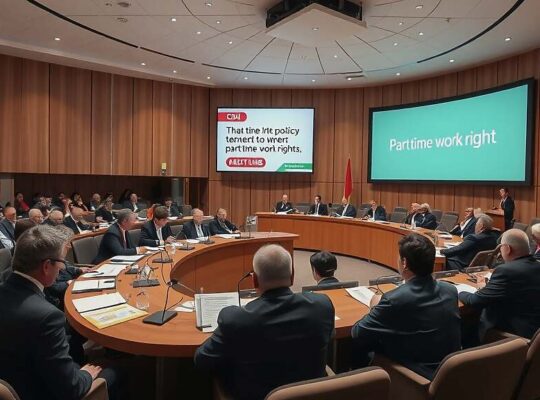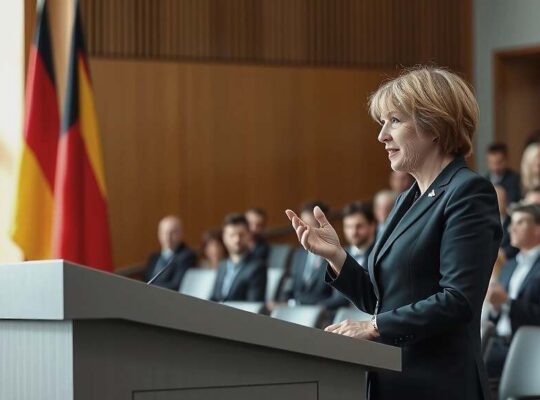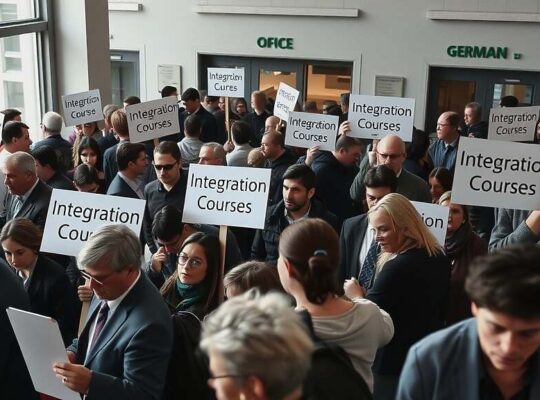The German parliament’s presiding officer, Julia Klöckner (CDU), has unveiled a series of proposals aimed at facilitating the reconciliation of parliamentary duties and childcare for members, sparking a renewed debate about the inclusivity of the Bundestag. In a letter to the chairman of the Rules of Procedure Committee, Macit Karaahmetoglu (SPD), Klöckner explicitly frames this initiative as a matter of urgency, highlighting the current system’s inherent disadvantages for parents.
A central component of Klöckner’s plan addresses the traditional practice of extended plenary sessions that often stretch late into the evening. The presiding officer argues fixed session end times are “an essential prerequisite” for enabling members to balance parliamentary roles with familial commitments. Furthermore, she criticizes the frequent, consecutive weeks of parliamentary sittings, particularly noting the strain this places on representatives whose constituencies lie geographically distant from Berlin, exacerbating logistical burdens for families.
Beyond scheduling adjustments, Klöckner proposes significant changes to voting procedures. She challenges the propensity for last-minute requests for roll-call votes, advocating instead for set deadlines. For procedural votes, her suggestion of “voting windows” – designated periods for casting a vote – attempts to alleviate the relentless demand for physical presence, a challenge particularly acute for members in the early months of parenthood.
The proposals also tackle the resistance to hybrid parliamentary sessions, especially within committees. Klöckner insists childcare obligations should be a legitimate justification for declining in-person attendance, arguing that, barring security concerns, the right to remote participation should be a given for the first year of a child’s life, rather than left to the discretion of committees. This raises questions about potential precedents for remote participation and the implications for parliamentary accountability.
Perhaps most pointedly, Klöckner highlights the disparity between protections afforded to mothers under the parliamentary law and the near-complete lack of parental leave provisions for fathers. The current legislative framework offers a minimum standard of protection for mothers but denies fathers even the right to excused absence on the day of a child’s birth. Describing this as “not contemporary and not a positive signal” Klöckner implicitly accuses the Bundestag of perpetuating outdated gender roles within its own ranks.
The proposals are likely to trigger a complex political discussion, not only concerning the logistical hurdles of parliamentary life but also fundamental questions about gender equality, work-life balance and the representation of diverse family structures within the Bundestag. While ostensibly intended to modernize the parliamentary process, Klöckner’s initiative has also exposed underlying tensions surrounding deeply entrenched practices and cultural norms within German politics.












